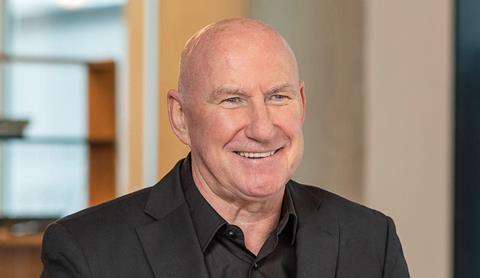It has been an extraordinary and difficult year, but the future can be better and brighter, writes Jack Pringle

We were the golden generation, the British baby boomers who never had to go to war, who revelled in the 60s, were poor in the 70s, got Thatchered in the 80s, Blaired in the 90s and watched our houses balloon in value to become our pensions.
What could go wrong? Well the double whammy of coronavirus and Brexit could go wrong. Still, my dad got shot at for six years by Germans so, if all I have to do is watch a bit more TV for a year, I think I’ll live with that as a life-deal.
>> Former Riba resident to set up new practice
Personally, this has been an extraordinary year. Having sold my firm Pringle Brandon to Perkins and Will in 2012, done a successful earn out and put my successor in place, I decided it was a great time to move on and do my six months of “gardening leave” in lockdown. Watch this space in the spring for a new venture.
I got re-elected to the RIBA council after a 13-year absence – there’s a lot to be done there. Then I had the joy and privilege of home schooling my seven-year-old for six months. I never had so much time with my elder children, so this was really appreciated. My year II maths is excellent now. So, so far a good lockdown.
But fifty thousand, mainly elderly, dead and counting is a tragedy for many families and by the time this is over our pubs, restaurants, clubs and travel businesses will be on their knees.
People are so tired of dull lockdown, they will want to celebrate, like the 20s or 60s.
Some people are predicting a K-shaped recovery. Quick and powerful for the haves; the tech sector and the well-financed, who can pick off the less well off. Weak and slow for hospitality, travel and the underfinanced.
I, like others, am trying to figure out what the post-pandemic world will look like. I predict a party – people are so tired of dull lockdown, they will want to celebrate, like the 20s or 60s.
On the work front, office workers have learnt a few things: video conferencing is easy and works well; some people in some jobs (particularly the well-established) can work well from home; some people (notably the young or less well-established) cannot work well at home.
If we are to work from home, we need a good home to work from; commuting is unpleasant and unwelcome; you cannot train young people well “remotely”; people like being with people and too much Zoom is tiresome. So, what does it all mean?
Well, I think that the early prediction of the death of the office was misplaced. I think it is clear that the young will want to work in a convivial, stimulating, “learning environment” office most of, if not all, the time. The more established will not want to commute just to do email, but will need to be in the office to meet, train and lead their staff and confer with colleagues.
The pandemic has killed presenteeism, so we can all be a bit more sensible in how and where we work.
As the average age of large companies is about 32, this gives a neat split. So, let’s say it averages out at three maybe four days a week for everyone in the office, whose purpose becomes a place to meet people in one way, or another.
I think we might see the rise of what you might call “smart working”. No need to flog in on the 7.15 if you can do a couple of hours’ work at home and travel out of the horrible rush hour. No need to dash back to the office at 4.30pm after an out-of-office meeting – save the double travel time and go home and do a couple of hours there.
Above all else, the pandemic has killed presenteeism, so we can all be a bit more sensible in how and where we work.
One tantalising possibility, if not inevitability, is the rise of the suburban town. Commuting is stupid and at the moment dangerous. Working at home can be unsatisfactory or lonely.
One solution is a relocation of offices, drop-in centres or co-working hubs to suburban or satellite towns. Places you can walk, cycle or e-scooter to.
There are plenty of ailing large shops and department stores that could be repurposed in this way. Perhaps to a mixed development of an active ground-floor retail or café, mid-section offices of some type and top-floor co-living.
This would populate and revitalise the high street. Who knows, maybe senior living would be better above the high street with all its new life and interest, where the grandchildren could pop in on the way back from school rather than some tranquil but dead rural enclave.
After wars and big recessions, there is always social change – and that includes the workplace. It is just difficult to predict what it is going to be.
There is also normally a decade of economic boom. 2021-22 are going to be a couple of fascinating years. Hold onto your hats!
Jack Pringle has been principal and EMEA regional director at Perkins+Will for eight years but is setting up a new practice next spring.


























No comments yet